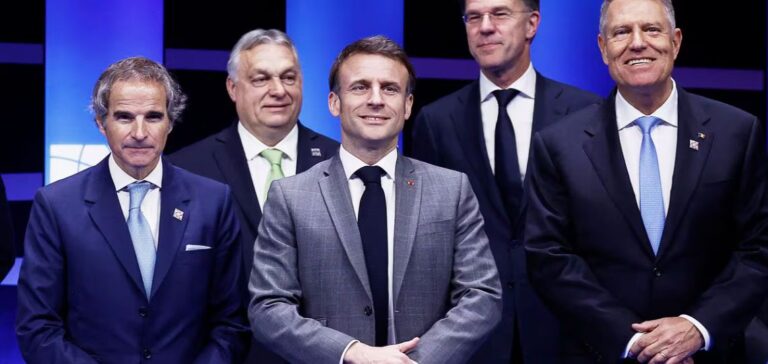The Brussels summit on March 21 and 22 symbolizes a significant shift in Europe’s perception of nuclear power, long sidelined in the wake of the Fukushima incident. Led by Rafael Grossi of the IAEA, this event highlights the growing recognition of nuclear power as an essential tool in the fight against global warming. The participation of China and the United States, as well as Emmanuel Macron’s personal commitment, reflect a shared desire to rethink the role of the atom in clean energy.
France, a driving force for change
France has played a key role in Europe’s nuclear revival, marked by a series of initiatives and lobbying efforts that began in late 2021. Ursula von der Leyen’s admission of the importance of nuclear power as a stable energy source marked a turning point, supported by the EU’s classification of atomic energy as a sustainable investment. The European Nuclear Alliance, led by France, symbolizes this dynamic, bringing together several member states around a common vision.
Nuclear power in the current geopolitical context
The urgent need to reduce dependence on Russian gas, exacerbated by the crisis in Ukraine, has put nuclear power back at the heart of European discussions. This energy source, perceived as stable and carbon-free, is seen as a strategic alternative in the face of energy and political uncertainties. The current summit reflects this awareness, seeking to position nuclear power as a key component of European energy security.
Financing and regulation: The challenges ahead
Despite an emerging consensus on the role of nuclear power, Europe still faces a number of regulatory and financial challenges. Recent discussions within the EU have led to advances such as the inclusion of nuclear power in zero-emission technologies. However, the establishment of a favorable financial framework, notably by the European Investment Bank (EIB), remains a major challenge. At the heart of the debate is the desire to achieve “technological neutrality”, with no discrimination between nuclear and renewable energies.
Europe divided over its energy future
The nuclear issue reveals deep divisions within the European Union. While France is moving resolutely in this direction, other member states, such as Spain and Germany, are expressing reservations, highlighting the advantages of renewables. These tensions underline the challenges of a common European energy policy, oscillating between the imperatives of decarbonization and technological and financial realities. The Brussels summit is therefore a key moment for the future of nuclear power in Europe, as we seek to harmonize these diverse perspectives for a unified, sustainable energy strategy.






















